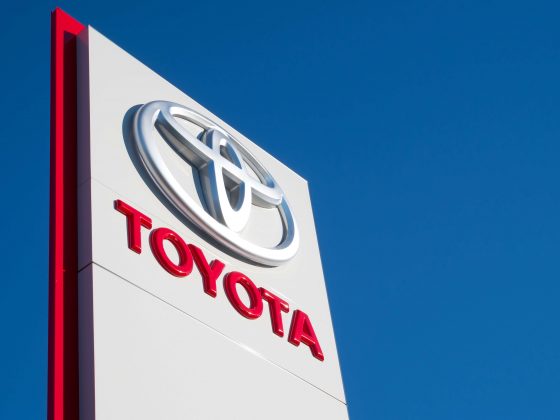Buying a car for your business, whether you have a small catering-delivery business, a florist or you’re a mobile mechanic, can be a savvy move with plenty of benefits that aren’t available when buying for personal use. The process is mostly the same, but business car buying comes with a few more factors to consider. Read on to learn more about the major keys you should know before buying a car in the name of your company.
Use eTags© to Quickly Complete Your DMV Service. Renewals, Title Transfers and More, All Online!

What does buying a car for your business mean for your taxes
There are plenty of tax benefits that come along with buying your car through your business. If you’re self-employed, you can get paid for operating your vehicle for business purposes. The “standard mileage rate” is at 56 cents per mile driven for 2021. So if you’re a locksmith, a mobile pet groomer, or a self-contracted mover, you can claim this deduction on your taxes.
Going to the bank, picking up office supplies, or driving to meet your lawyer, all count as business mileage
Depending on your preferred method for tax savings, standard mileage deduction or actual expenses method, you may be able to deduct tolls, parking fees, car maintenance and repairs, and registration fees. With the standard mileage rate is straightforward, you don’t have to keep track of as many records as much. The actual expenses method requires you to keep all of your receipts for maximum discount.

A rule of thumb is you must claim the standard mileage rate the first year your vehicle is deemed a business car. This makes way for a second option available in the following years called “Actual Auto Expenses.” By using this deduction, you can claim much more than just the mileage on your business vehicle. You’ll be eligible to deduct things like auto insurance, gas, repairs, garage rent, tolls, even depreciation.
Remember, tax laws change year by year. It’s a good idea to consult your accountant and/or tax preparer before buying a new car for your business. It’s better to be prepared with information about what your tax implications will look like. Not only will it save you from a pesky audit, but your accountant (who probably knows your business well) will make sure you claim all possible deductions.
Carfax says vehicles lose more than 10% of their value in the first month, and trends down going forward
Can your business afford it
This is perhaps the best advice you’re going to get from a stranger. Be realistic about the financial state your business is in. This should help you determine exactly what you can afford. If the business is slow and you’re not turning a good profit, it might be a better idea to put the car in your personal name until the climate changes. Are there other more pressing matters like replacing company equipment or dealing out overdue raises? Are your liabilities higher than your assets? You don’t want to take more financial risks than you can afford.

Driving from your home to your office and back is commuting; that’s not deductible on either your business or your individual tax return
Determine where you’re at by looking at factors like how long your company has been open and what your cash flow is like. If you’re an older company that goes through ups and downs but has been profitable for a lot of years, you might be able to handle the added expense of a new vehicle. If you’re just starting out and having a tough time paying your overhead and employees you may consider waiting. It’s hard information to digest, especially if you’re struggling but it’s better for you in the long run if you stay realistic.
What you need in a vehicle
Think of the kind of vehicle you want, but also what you need. Maybe you make deliveries and so a rear view camera is a must have. If you’re driving clients around all day, consider a hybrid or EV to save on fuel costs. Do some research and figure out what vehicle is suitable for the job you’re doing. Consider the weather where you live and work. Perhaps 4-wheel drive is non-negotiable if you live in a cold, snowy environment.
It’s important to mention, when we’re choosing a vehicle for our personal use, we become sort of carried away with the vanity of it all. We can wrap ourselves in the details of how it looks and how fancy the features are. When talking in terms of a company car, aim to be more rational in your decisions. It’s important to be able to enjoy the purchase, but the first step to that pleasure is making a smart buy that well suits your business. Leasing may be a good option if your company hasn’t been in business for a long time or if you’re unsure of what the future holds.
Vehicle registration and taxes fees are deductible with both methods of deduction

How do you intend on purchasing the vehicle
If you’ve been in business long and you’re thriving, this may be a no brainer. If you can purchase a new or used vehicle outright, problem solved. Unfortunately, that’s not everyone’s reality, so it’s a good idea to know your financing options. For new or small businesses, buying a brand new vehicle isn’t always an option. Consider looking for a used vehicle to save money. Granted, older cars might come with their share of issues so do yourself a favor and get your mechanic to tag along when you make the purchase.
SEE ALSO: FINANCING A CAR-DIRECT LENDING VS. DEALERSHIP FINANCING
Deciding whether you want to finance or lease the vehicle can be hard to determine. Leasing comes with some benefits like lower upfront costs, lower payments and you ultimately could drive your dream car! Vehicle lease payments are usually tax deductible which is a check in the pros column for sure. The downsides are the fact that the car is never really yours, there could be mileage limits (no good if you literally drive for a living) and even additional maintenance costs.
If you use the actual expenses method, you can deduct car insurance, driver’s license payments, as well as payments for a garage if you rent one
Likewise, financing has its pros and cons as well. While there are no mileage limits and your payments are going toward what will be an asset, and even still some tax deductions regarding the interest payments, you’ll undoubtedly need a down payment for the purchase. And the upkeep of the car is all on you. The better kept the car is, the more it’ll be worth when you pay it off.

Business vehicles are cars, SUVs and pickup trucks that are used for business activities. Picking out that type of vehicle is best thought of as a long term investment. Choose wisely so that in the end you’re left with a good reliable vehicle that’ll serve you and your business for the future. The more economical the vehicle is, the more likely the standard mileage rate will give you the bigger deduction.








